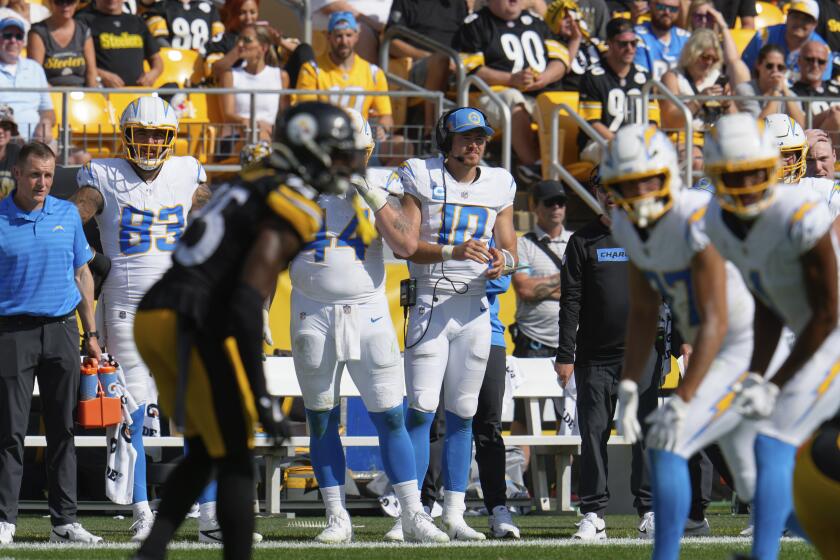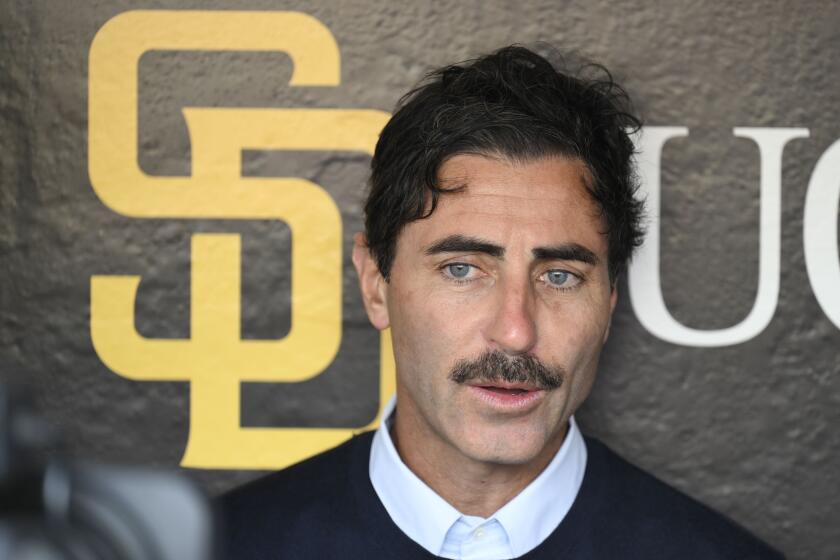An L.A. stadium end run
Los Angeles has gone for many years without a professional football team, and we’d be as enthusiastic as a caffeine-amped Chris Berman if the issues surrounding stadium construction or renovation could be resolved quickly and simply. But Angelenos have rightly made it very clear that they won’t be held hostage by outrageous demands from prospective NFL owners for public subsidies or other breaks. Unfortunately, that hasn’t stopped them from trying, as a recent effort to hijack the legislative process by stadium developer Majestic Realty shows.
Lobbyists from Majestic were busy last week in the state Capitol pushing a bill that would exempt its proposed stadium in the city of Industry from environmental review. Spokeswomen for Senate leader Darrell Steinberg (D-Sacramento) and Assembly Speaker Karen Bass (D-Los Angeles) said the lawmakers were considering the proposal. The language of the bill has been drawn up, but it hadn’t yet attracted a sponsor Wednesday and may not come up for a vote before the session ends Friday. It shouldn’t.
Capitol wags have dubbed this kind of legislation “mushroom bills,” because they seem to sprout in the darkness at the end of a session. Such bills typically benefit big campaign donors at the expense of the public, and probably wouldn’t survive the normal procedures.
The Los Angeles County Board of Supervisors is so worried about the Majestic bill that it voted Tuesday to order the county’s lobbyists to oppose it. It has reason to be concerned. Majestic owner Ed Roski is a zealous and determined proponent of Southern California football; he also is an active contributor who has personally or through his company given out more than $710,000 in political donations since 2007, according to the secretary of state.
Exempting the stadium from state environmental review would cut the public out of the process and free the developer from having to mitigate serious environmental consequences. The project would still be subject to review by the city of Industry, but things like traffic and air pollution don’t confine themselves to one city; streets and freeways in the vicinity would almost certainly be jammed on game days, for example, and surrounding cities have a right to participate in decision-making and demand action to reduce the problems.
It’s mushroom season in Sacramento; also up for consideration is AB 813 by Assemblyman John Perez (D-Los Angeles), which would waive state prohibitions on alcohol advertisements at downtown’s Club Nokia, which happens to be owned by billionaire political contributor Philip Anschutz. The thing about mushrooms is, if they look poisonous, they probably are.
More to Read
Go beyond the scoreboard
Get the latest on L.A.'s teams in the daily Sports Report newsletter.
You may occasionally receive promotional content from the Los Angeles Times.










